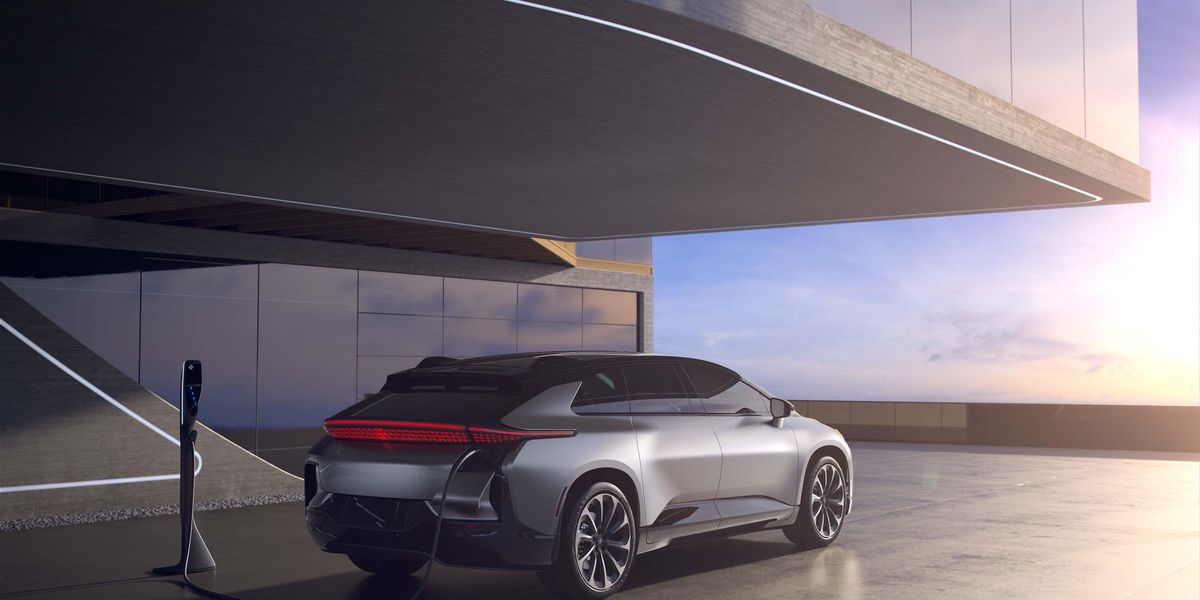
This is the web version of dot.LA’s daily newsletter. Sign up to get the latest news on Southern California’s tech, startup and venture capital scene.
Well, then—at long last, Faraday Future has finally made a car.
Last week, the Gardena-based electric automaker unveiled a luxury SUV dubbed the FF91. No, it’s not a production model; no, it’s not yet available for pre-order; and no, you can’t test drive it. But for the embattled company, which has faced extensive financial issues and executive turnover, it’s a start. Once among the hottest names in the EV space, Faraday Future’s road to this point has been almost comically Odyssean.
Faraday’s struggles are perhaps best summed up by a class action lawsuit that it is currently entangled in with its own investors. The plaintiffs’ allegations are myriad, but highlights include how the company has “reneged on promises” to build factories in both the U.S. and China, is being sued by “dozens” of unpaid suppliers and failed to inform investors that Chinese courts had frozen its assets. The suit also alleges that most of the 14,000 reservation deposits claimed by Faraday are “fabricated,” as 78% of them were made by a “single undisclosed company that is likely an affiliate” of the automaker.
Yet despite its legal issues, there’s been reason for optimism around Faraday. The company has restructured its leadership and refinanced debt with suppliers, while its controversial founder and former CEO, Jia Yueting, was forced to cede some of his control under the weight of heavy personal debts. (Jia was replaced as CEO by former BMW executive Carsten Breitfeld.) Last summer, Faraday joined a wave of electric automakers that have gone public via SPAC deals—though the move exposed it to the investor lawsuit it’s now facing, and like many EV manufacturers, its stock has struggled mightily.
Still, eight years into its journey, Faraday’s many challenges—not least its inability to produce a commercial vehicle—seemed destined to sink the company. (After all, it’s flirted with bankruptcy enough times to carry a season of “Silicon Valley.”) But then came last week’s unveiling of the FF91—and like a battery-powered phoenix on 1%, Faraday appears to have risen from the depths with a vehicle that, it claims, actually works.
Is it more smoke and mirrors from a company accustomed to them, or a sign that the Faraday is finally on track? It’s hard to say. Like its crosstown rivals Rivian and Fisker, Faraday has long advertised its technology as superior to Tesla’s; if it can actually deliver on those promises, Faraday Future might actually have a future. But, as ever, that remains to be seen. — David Shultz
Jeffrey Katzenberg Defends Quibi Failings, Talks NFT Investments
Jeffrey Katzenberg didn’t mince words when addressing the elephant in the room during his appearance at the Upfront Summit on Wednesday—saying he learned valuable lessons from the rapid demise of his short-form TV app, Quibi.
The TikTok Stars Who Broke Out In February
From lip-synch experts and dance choreographers to storytellers and recipe sharers, we run down the rising TikTok stars with data from Santa Monica-based Famous Birthdays—a Wikipedia of sorts for internet personalities and budding influencers.
Rivian Raises Its Electric Vehicle Prices
The Irvine-based company announced that it intends to raise the price of its electric vehicles to account for inflation and supply chain woes. Rivian's pickup truck will see a 17% price increase, while its SUV will jump 20%.
State AGs To Look At Whether TikTok Harms Children
A bipartisan group of state attorneys general, including California's, have launched an investigation into TikTok to look into the physical and mental health harms that TikTok may cause children and teenagers.
Netflix Will Buy Finnish Mobile Games Developer Next Games
The $72 million transaction is expected to close in the second quarter of this year and would be Netflix’s second acquisition of a gaming studio in less than six months, following its September acquisition of Glendale-based Night School.
Bessemer’s Elliott Robinson on Why Venture Capital Is Still So White
“There's a lot of diversity BS in venture capital—there still is.” Addressing the mostly white crowd on hand for this year's Upfront Summit, Robinson called out VC firms for their surface-level posturing on diversity and noted that Black startup founders still struggle for a disproportionately low percentage of venture capital funds.
What We're Reading Elsewhere...
- Despite the departure of its president, Jeff Zucker, CNN is pushing ahead with its news streaming app, CNN+.
- Veo opens its new headquarters in Santa Monica. (We talked with their CEO last month about her plans to create a more equitable micromobility platform).
- Polestar debuts its new electric roadster in L.A.
- FoundersBoost seeks L.A. startups to fill out its spring 2022 cohort. (Deadline: 3/16)
- Kia is piloting a concierge service for electric vehicle owners in L.A, S.F. and San Jose.
- Epic Games, the maker of Fortnite, acquires indie music platform Bandcamp.
- Amazon announces it will close 68 retail stores, including Amazon Books.
We're Trying Something New
Notice some changes to the daily newsletter? We heard you and we're working to make the newsletter more informative, with deeper analysis and more news about L.A.'s tech and startup scene. Let us know what you think in our survey, or email us!


